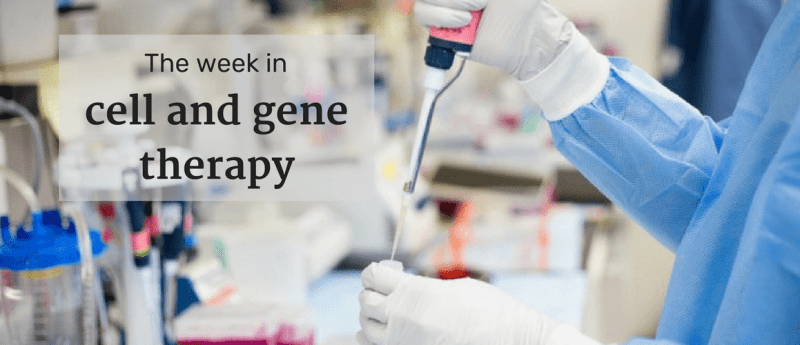Cell therapy weekly: New biotech focused on engineered cells licenses Harvard tech

This week: Kymriah is first CAR-T therapy available in Asia, MaSTherCell SA opens new cell and gene therapy manufacturing facility and protein encapsulation protects human stem cell-derived beta cells.
The news highlights:
New biotech focused on engineered cells licenses Harvard tech
Kymriah is first CAR-T therapy available in Asia
MaSTherCell SA opens new cell and gene therapy manufacturing facility
Protein encapsulation protects human stem cell-derived beta cells
New biotech focused on engineered cells licenses Harvard tech
Sana Biotechnology, Inc. (WA, USA), which launched in 2019 and focuses on creating and delivering therapeutic engineered cells, has licensed Harvard University (MA, USA) technology that allows for the creation of hypoimmunogenic stem cells. The hypoimmunogenic stem cells are created from pluripotent stem cells and are engineered to ‘hide’ from the immune system. Sana hopes to differentiate these cells and use them to replace missing or injured cells in the body.
“Overcoming the immune-rejection barrier is essential for making stem cell—derived therapies broadly accessible,” said Chad Cowan, whose laboratory in Harvard’s Department of Stem Cell and Regenerative Biology (SCRB) developed the licensed innovations and who is also a co-founder of Sana. “These inventions give us the tools to create treatments and cures for a host of conditions that have few, if any, effective treatments today.”
Kymriah is first CAR-T therapy available in Asia
Kymriah® (tisagenlecleucel) has been approved for use in Japan to treat CD19-positive relapsed or refractory (r/r) B-cell acute lymphoblastic leukemia (ALL) and CD19-positive r/r diffuse large B-cell lymphoma (DLBCL). Developed by Novartis (Basel, Switzerland), this approval makes Kymriah the first CAR-T cell therapy authorized for use in Asia. The application was filed in April 2018.
MaSTherCell SA opens new cell and gene therapy manufacturing facility
MaSTherCell S.A. (Gosselies, Belgium) has leased a 5,700m2 (61,354ft²) facility in Belgium for the manufacture of late-stage and commercially-approved cell and gene therapies, significantly expanding on their current capability. The facility will bring together integrated software and processes, and intelligent equipment, and is expected to be operational in 2021.
“As a leading CDMO, MaSTherCell has a role to play in solving the current lack of commercial manufacturing capacities in Europe and we believe this facility will be a game changer for market access worldwide,” said Denis Bedoret, CEO of MaSTherCell SA and President of Masthercell Global.
“With this new site, we aim to be the first contract development and manufacturing organization in Europe to have a dedicated area for large-scale commercial manufacturing.”
Protein encapsulation protects human stem cell-derived beta cells
Microcapsules developed by a team at Massachusetts General Hospital (MA, USA) have been shown to protect human stem-cell-derived beta cells, protecting them from the immune system and allowing them to restore glucose metabolism in a diabetic murine model. In research recently published in the American Journal of Transplantation, the microcapsules, which contained CXL12, a protein that repels immune cells, also prevented build-up of inflammatory tissue and the encapsulated beta cells restored blood sugar control to the animals in the long term.
Lead author David Alagpulinsa commented, “Unlike the previous study, this study uses human beta cells, and all the elements are biocompatible, which should facilitate the development of a clinical version of this product. The stem-cell-derived beta cells can be generated in unlimited quantities from both individuals with and without type 1 diabetes, and CXCL12 is a protein that is normally produced in pancreatic islets in the body.”
For more weekly cell therapy news, read previous editions of the cell therapy weekly.